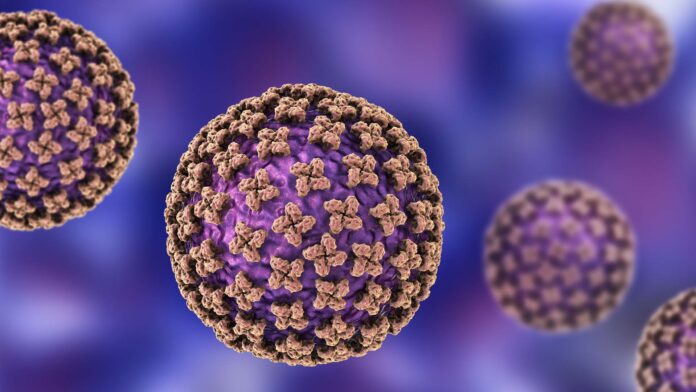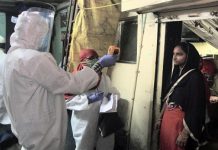Hantavirus are a group of viruses transmitted primarily by rodents. Infections with hantaviruses can cause severe and sometimes fatal diseases in humans. Two main clinical syndromes associated with hantavirus infections are Hantavirus Pulmonary Syndrome (HPS) and Hemorrhagic Fever with Renal Syndrome (HFRS).
Symptoms
Hantavirus Pulmonary Syndrome (HPS):
- Early Symptoms (1-2 weeks post-exposure):
- Fever
- Fatigue
- Muscle aches (especially in large muscle groups like thighs, hips, back, and sometimes shoulders)
- Headaches
- Dizziness
- Chills
- Gastrointestinal symptoms (abdominal pain, nausea, vomiting, diarrhea)
- Late Symptoms (4-10 days after early symptoms):
- Coughing
- Shortness of breath
- Fluid buildup in the lungs (pulmonary edema)
- Severe respiratory distress
Hemorrhagic Fever with Renal Syndrome (HFRS):
- Early Symptoms:
- Intense headaches
- Back and abdominal pain
- Fever
- Chills
- Nausea
- Blurred vision
- Flushing of the face
- Inflammation or redness of the eyes
- Rash
- Later Symptoms:
- Low blood pressure
- Acute shock
- Vascular leakage
- Kidney failure (oliguria followed by polyuria)
Causes
Hantaviruses are primarily spread by rodents. Humans can contract hantaviruses through:
- Inhalation: Breathing in aerosolized virus particles from rodent urine, droppings, or saliva.
- Direct Contact: Touching surfaces contaminated with rodent excreta and then touching the mouth or nose.
- Bites: Rare, but possible transmission through rodent bites.
Rodent species known to carry hantaviruses include deer mice, white-footed mice, rice rats, and cotton rats in the Americas, and other rodent species in Europe and Asia.
Treatment
There is no specific antiviral treatment for hantavirus infections. Supportive care is crucial and may include:
- For HPS:
- Intensive care: Patients with severe respiratory distress require intensive care with mechanical ventilation and oxygen therapy.
- Fluids: Careful management of fluids to avoid overloading the lungs.
- For HFRS:
- Hospitalization: Close monitoring of fluid and electrolyte balance.
- Dialysis: In cases of severe kidney failure, dialysis may be necessary.
Early detection and medical care can improve outcomes, especially for HPS. Ribavirin, an antiviral drug, has shown some effectiveness in treating HFRS when administered early.
Prevention
Preventing hantavirus infection primarily involves reducing exposure to rodents and their excreta:
- Avoiding Rodents: Keep homes, workplaces, and campsites rodent-free.
- Sealing Entry Points: Seal up holes and gaps in buildings to prevent rodent entry.
- Proper Sanitation: Clean up food waste and store food in rodent-proof containers.
- Safe Cleanup: When cleaning areas contaminated with rodent droppings, use gloves and masks, ventilate the area, and avoid stirring up dust. Use disinfectants like bleach to clean contaminated surfaces.
- Education: Educate people living in or visiting areas where hantaviruses are common about the risks and preventive measures.
Summary
Hantavirus infections can be severe and life-threatening, with early diagnosis and supportive care being critical for improving outcomes. Preventive measures focus on minimizing human contact with rodents and their excreta.

































